Physical Address
60 Ekwema Cres, Layout 460281, Imo
Physical Address
60 Ekwema Cres, Layout 460281, Imo
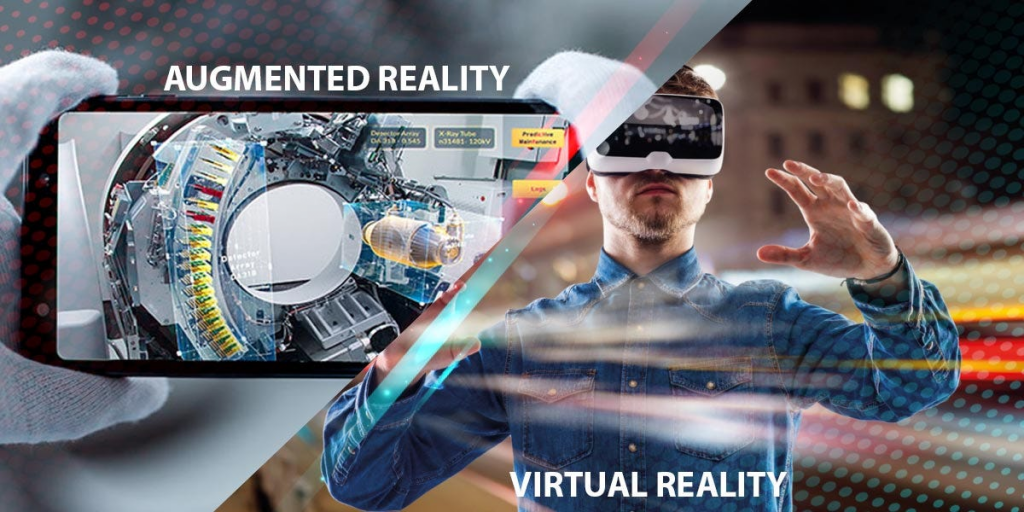
Technological innovations have played a pivotal role in fostering global connectivity and personalization.
With the advent of the internet and smartphones, the world has become more interconnected than ever before This, in turn, has enabled instant communication and access to information from virtually anywhere.
Artificial intelligence has further enhanced this connectivity by revolutionizing industries ranging from healthcare to finance, offering personalized solutions and insights tailored to individual needs.
A series of ground-breaking inventions that have altered the world as we know it mark the transition from antiquity to modernity in the ever-evolving landscape of technological advancements.
From the rudimentary tools of ancient civilisations to the sophisticated digital age of today, technological innovations have consistently propelled humanity forward, revolutionizing the way we live, work, and interact with one another.
Over the centuries, the pace of technological innovation has accelerated exponentially, driving significant changes in every aspect of human life.
From the invention of the wheel and the printing press to the emergence of the internet and artificial intelligence, each milestone represents a leap forward in human ingenuity and creativity.
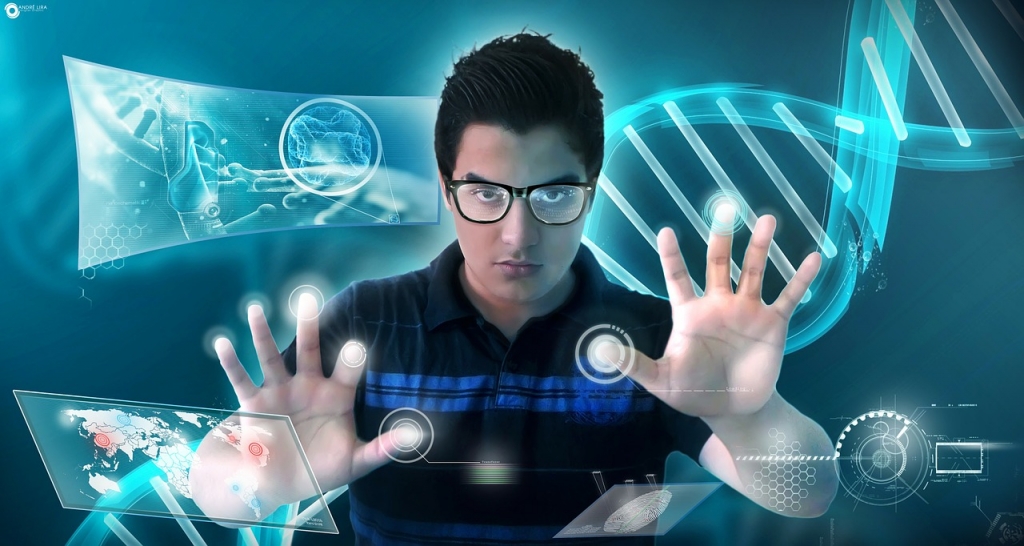
At the forefront of the current technological landscape are several key trends that are poised to revolutionize industries and redefine the way we live, work, and interact with technology.
Among these trends, artificial intelligence stands out as a transformative force that drives advancements in fields ranging from healthcare to finance.
With its ability to analyze vast amounts of data and make intelligent decisions, AI is unlocking new possibilities for innovation and efficiency.
Another notable trend is the rise of smartphones as ubiquitous tools of communication and connectivity.
With their powerful processors and versatile capabilities, smartphones have become indispensable companions in our daily lives.
Smartphones enable us to stay connected, informed, and productive wherever we go. From accessing information on the go to managing our personal and professional lives, smartphones have revolutionized the way we interact with technology.
In addition to artificial intelligence and smartphones, other emerging technologies, such as mixed reality, genomics, and generative AI, are also shaping the future of innovation.
Mixed reality blurs the lines between the physical and digital worlds. It creates immersive experiences that have the potential to transform industries ranging from entertainment to education.
Genomics, on the other hand, holds the promise of unlocking the secrets of the human genome. It is paving the way for personalized medicine and targeted treatments.
Meanwhile, generative AI is pushing the boundaries of creativity, enabling machines to autonomously generate art, music, and literature.
In technological innovations, tech companies play a pivotal role in driving progress and shaping the future of human civilization.
Among these trailblazers, industry giants such as Intel, Cisco, and Dell stand out for their relentless pursuit of innovation and their transformative contributions to artificial intelligence and technological advancements.
Intel Corporation is a renowned leader in the technology sector. With its cutting-edge hardware and software solutions, Intel has enabled breakthroughs in AI technology.
As a result, industries are empowered to harness the power of machine learning and data analytics. From powering AI-driven sports analytics to facilitating real-time feedback for athletes, Intel’s contributions have changed the way we approach sports performance and training.
Similarly, Cisco Systems, Inc., a global leader in digital communications technology, has made significant strides in advancing artificial intelligence through its innovative products and solutions.
Through initiatives like the Cisco AI Assistant for Security, Cisco has leveraged AI to enhance cybersecurity measures and mitigate emerging threats.
By harnessing the power of AI-driven encrypted visibility engines and firewall policies, Cisco is helping organizations stay ahead of evolving cyber threats and safeguard their digital assets.
Dell Technologies Inc., another prominent player in the technology industry, has been driving innovation through its cutting-edge hardware solutions and strategic partnerships.
By leveraging powerful technologies such as NVIDIA GPU-accelerated workloads, Dell has enabled organizations to harness the power of AI and machine learning for complex computational tasks.
Through initiatives like the collaboration with CoreWeave, Dell is empowering organizations to unlock new possibilities in AI-driven research, simulation, and data analysis.
Read also: Your Industry is Safe: 15 Jobs AI Will Not Replace in 2025 –2034

Among the pioneers in this field, Intel stands out for its collaboration with ai.io.
It is a partnership that is changing the way sports teams identify talent and optimize performance through the power of AI.
Intel’s support for ai.io in efficient scouting through AI represents a groundbreaking application of artificial intelligence in the realm of sports coaching and athlete identification.
By harnessing the capabilities of AI-powered technologies, Intel and ai.io have empowered sports coaches and clubs to streamline the scouting process.
They have also empowered them to identify athletes with the optimal skill sets for their respective teams. Through real-time feedback and data analysis, athletes can pinpoint areas for improvement and refine their performance.
Clubs, on the other hand, can identify talent that aligns with their strategic objectives and team dynamics.
The role of AI in sports coaching and athlete identification cannot be overstated.
With the ability to analyze vast amounts of data and identify patterns and trends, AI-driven technologies offer invaluable insights into athlete performance and potential.
Moreover, by leveraging AI-driven scouting processes, sports teams can gain a competitive edge in talent acquisition and strategic planning. This will ultimately enhance their performance and success on the field.
In the realm of cybersecurity, the emergence of innovative technologies has become paramount in combating evolving threats and safeguarding digital assets.
Cisco Systems, Inc. has introduced the Cisco AI Assistant for Security. It is an application of artificial intelligence in identifying and mitigating cybersecurity risks.

The introduction of Cisco AI Assistant for Security marks a significant milestone in the ongoing evolution of cybersecurity technologies.
Leveraging the power of artificial intelligence, this innovative solution offers advanced capabilities for detecting and responding to cyber threats in real time.
By analyzing vast amounts of data and identifying patterns indicative of malicious activity, Cisco AI Assistant enables organizations to proactively defend against cyber attacks and safeguard their digital infrastructure.
One of the key applications of the Cisco AI Assistant is its ability to identify encrypted traffic carrying malware. That was a well-known critical challenge in modern cybersecurity defenses.
Traditional security measures often struggle to detect malicious activity hidden within encrypted communications, leaving organizations vulnerable to sophisticated cyber-attacks. However, with the advanced capabilities of AI-driven encrypted visibility engines, Cisco AI Assistant can analyze encrypted traffic in real time and identify indicators of compromise. This has, in turn, afforded organizations the ability to mitigate threats before they escalate.
The impact of Cisco AI Assistant on identifying encrypted traffic carrying malware cannot be overstated. By providing organizations with visibility into encrypted communications, this innovative solution empowers security teams to detect and respond to cyber threats with greater speed and accuracy.
Dell Technologies Inc.’s agreement with CoreWeave for GPU-accelerated workloads represents a significant advancement in the domain of technological innovations.
This agreement underscores the company’s commitment to delivering cutting-edge solutions for GPU-accelerated workloads.
By leveraging powerful technologies such as NVIDIA GPUs, Dell has empowered organizations to harness the full potential of artificial intelligence, machine learning, and simulations.
This collaboration enables organizations to access high-performance computing resources and accelerate complex computational tasks with speed and efficiency.
The applications of Dell’s cloud solutions with NVIDIA GPUs are vast and far-reaching, spanning various industries and disciplines.
In the realm of artificial intelligence, organizations can leverage these technologies to train and deploy advanced machine-learning models for various tasks.
By harnessing the computational power of NVIDIA GPUs, organizations are enabled to achieve breakthroughs in AI-driven innovation and decision-making.
Moreover, Dell’s cloud solutions with NVIDIA GPUs are instrumental in advancing machine learning initiatives, enabling organizations to analyze vast datasets and derive actionable insights with unparalleled accuracy.
From optimizing business operations to driving innovation in product development, these technologies empower organizations to unlock new opportunities for growth and competitiveness in the digital age.
In addition to AI and machine learning, Dell’s cloud solutions with NVIDIA GPUs find applications in simulations and scientific research.
By providing organizations with access to high-performance computing resources, these technologies enable researchers and scientists to simulate complex phenomena, conduct virtual experiments, and accelerate the pace of discovery across various domains.
Read also: 7 Hot Tech Jobs in Global Demand 2025
In the ever-evolving landscape of technological innovations, certain advancements stand out for their profound impact on society and daily life.
From artificial intelligence to smartphones, these technologies have revolutionized the way we live, work, and interact with the world around us.
This section highlights 15 transformative technologies that have changed the world, with a focus on their contributions to shaping the digital age.

AI represents a groundbreaking technological innovation that has revolutionized various industries, from healthcare to finance.
With its ability to analyze vast amounts of data and derive actionable insights, AI has transformed decision-making processes and automated tasks. It has also brought about more efficiency and innovation.

Smartphones have become an indispensable part of modern life They enable instant communication, access to information, and countless other applications and services.
With their advanced capabilities and connectivity, smartphones have reshaped how we interact with technology and each other.

The advent of 5G technology has ushered in a new era of connectivity. It offers faster speeds, lower latency, and greater bandwidth.
As 5G networks continue to roll out, they will enable transformative applications such as autonomous vehicles, augmented reality, and the Internet of Things (IoT).

Facial recognition technology has become increasingly prevalent in various aspects of daily life, from unlocking smartphones to enhancing security measures.
With its ability to identify individuals based on their unique facial features, facial recognition has applications in law enforcement, retail, and personal authentication.
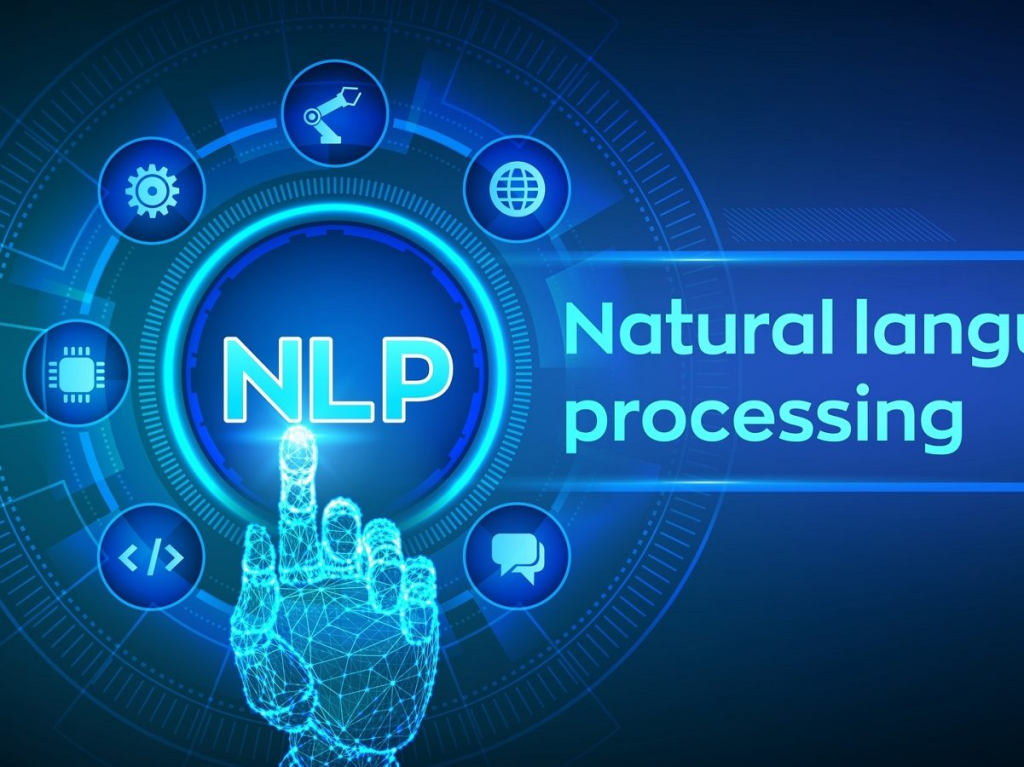
NLP is a branch of artificial intelligence that focuses on enabling computers to understand, interpret, and generate human language.
From virtual assistants to language translation services, NLP has transformed how we interact with technology and access information.
Read also: Everything You Need to Know About Google’s Latest AI-powered Updates on Search

Cloud computing has changed the way organizations store, process, and access data. It offers scalability, flexibility, and cost-effectiveness.
With cloud-based services, businesses can leverage powerful computing resources and infrastructure without the need for extensive on-premises hardware.

Big data analytics involves the collection, processing, and analysis of large and complex datasets to extract valuable insights and inform decision-making.
From predicting consumer behavior to optimizing business operations, big data analytics has become indispensable in today’s data-driven world.

IoT refers to the network of interconnected devices and sensors that collect and exchange data over the internet.
From smart home devices to industrial sensors, IoT technology has enabled new levels of automation, efficiency, and connectivity across various industries.

Blockchain is a decentralized and immutable digital ledger technology that enables secure and transparent transactions. With its applications in cryptocurrency, supply chain management, and digital identity verification, blockchain has the potential to change how we exchange value and trust online.
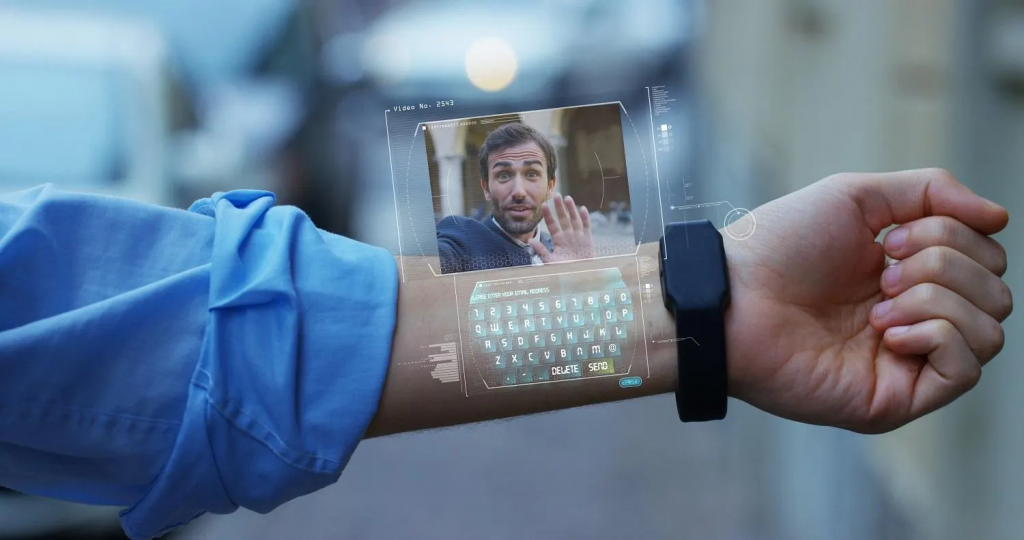
Wearable technology encompasses devices such as smartwatches, fitness trackers, and augmented reality glasses that can be worn on the body.
With their ability to monitor health metrics, provide real-time feedback, and enhance productivity, wearables have transformed personal wellness and professional performance.
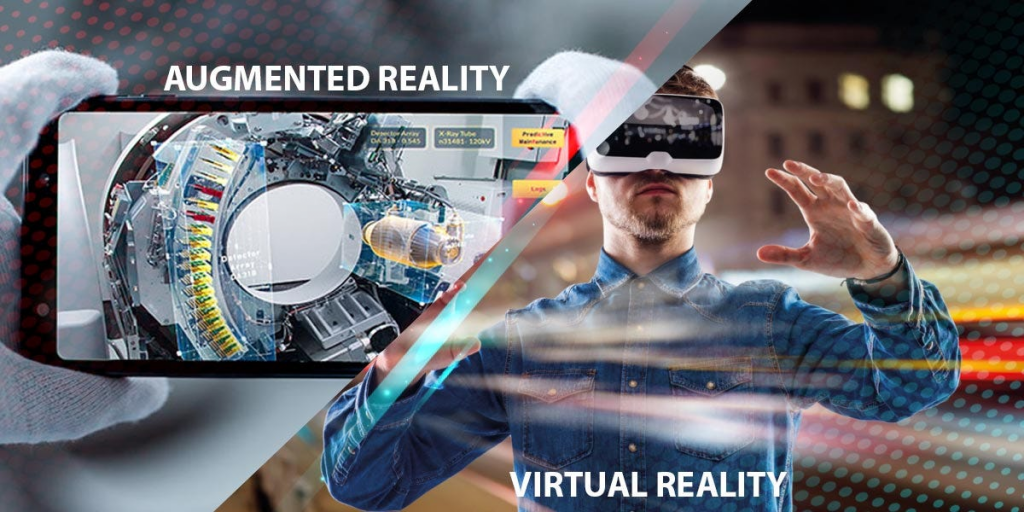
VR and AR technologies create immersive digital experiences that blend the physical and virtual worlds. From gaming and entertainment to training and education, VR and AR have opened up new possibilities for interactive storytelling and experiential learning.

Voice interfaces and chatbots enable natural language interaction with computers and devices, facilitating tasks such as information retrieval, customer service, and virtual assistance.
With advancements in speech recognition and natural language understanding, voice interfaces and chatbots have become integral parts of our digital lives.

Cybersecurity technologies encompass a range of tools and techniques designed to protect digital assets and data from unauthorized access, theft, and damage.
With the increasing prevalence of cyber threats and attacks, cybersecurity technologies play a crucial role in safeguarding sensitive information and maintaining trust in digital transactions.

Robotics and automation technologies involve the design and development of machines and systems capable of performing tasks autonomously or with minimal human intervention.
From manufacturing and logistics to healthcare and agriculture, robotics and automation have revolutionized industries and processes, increasing efficiency and productivity.
Personalized medicine involves tailoring medical treatments and interventions to individual patients based on their genetic makeup, lifestyle, and environmental factors.
With advancements in genomics, data analytics, and medical imaging, personalized medicine has the potential to revolutionize healthcare by offering more precise diagnoses and targeted therapies.
Determining the single most significant technological innovation is subjective and depends on various factors. However, many experts argue that the internet has had a profound and far-reaching impact on society. It has revolutionized communication, commerce, education, and entertainment, connecting billions of people worldwide.
Technology has significantly transformed the workplace. Some of the key impacts include:
1. Remote work: Advances in communication and collaboration tools have enabled remote work, allowing people to work from anywhere with an internet connection.
2. Automation: Automation technologies, such as robots and AI, have automated many routine tasks, increasing efficiency and productivity.
3. Digital transformation: Businesses are increasingly adopting digital technologies to streamline operations, improve customer experiences, and gain a competitive edge.
4. New job roles: The rise of technology has created new job roles, such as data scientists, cybersecurity experts, and software engineers.
Artificial Intelligence
Smartphones
5G
Facial Recognition
Natural Language Processing(NLP)
Cloud Computing
Big Data Analytics
Internet of Things
Blockchain
Wearable Technology
Virtual Reality (VR) and Augmented Reality (AR)
Voice Interfaces and Chatbots
Cybersecurity Technologies
Robotics and Automation
Personalized Medicine
In conclusion, these 15 transformative technologies have changed the world in profound ways, shaping the digital age and driving innovation across various industries and domains.
From artificial intelligence and smartphones to cloud computing and wearable technology, these advancements continue to redefine how we live, work, and interact with technology, paving the way for a more connected, intelligent, and sustainable future.
Stay abreast of the latest happenings in the realm of technology by turning on your notifications to receive our new updates. Also, kindly follow us on X or Twitter @SiliconAfriTech